Choosing EHR Integration Software? Ask These 5 Questions Before the Demo
Choosing EHR integration software is high-stakes. While product demos offer a chance to explore features and interfaces, they often present an idealized version of the tool: polished, rehearsed, and built to impress.
If you wait until the demo begins to ask your most critical questions, you risk being swept along by flashy presentations without getting the real answers you need. Asking targeted questions before the demo sets the tone for the evaluation, frames the conversation around your actual needs, and filters out surface-level sales pitches early.
This guide covers five essential questions to help you evaluate smarter and invest with confidence.
What is EHR Integration Software?
EHR integration software acts like a bridge between your electronic health record (EHR) system and other healthcare technologies. Think of all the different tools your clinicians use, like scheduling platforms, billing systems, imaging tools, and clinical decision support platforms. None of these live in isolation. They need to connect with your EHR to be truly useful.
EHR integration software ensures that information flows smoothly between systems. It allows clinicians to access patient data, decision support, billing information, and more without leaving the EHR environment. This decreases duplicate work, prevents errors, and saves critical time. Also, physicians don’t have to burden themselves with admin work.
But integration isn’t just about connecting APIs or pushing data from one system to another. The tool should also fit naturally into clinical workflows. It should appear at the right moment in the clinician’s workflow and provide the needed functionality without disruption.
Solutions like EvidenceCare understand this deeply. Their clinical decision support platform is designed to live inside the EHR experience, providing real-time insights at the point of care, without forcing clinicians to move between screens or slow down their decision-making.
5 Key Questions to Ask Before a Demo
Asking the right questions before a demo ensures you focus only on real-world performance. It helps uncover integration challenges early, aligns the tool with clinical workflows, and avoids costly surprises after deployment, improving the adoption of clinical technology. So, here are some questions you should ask before the demo:
Question 1: How Does Your Software Integrate with Our Existing EHR — Not Just in Theory, But in Real-World Workflows?
Many vendors claim to offer EHR integration, but not all deliver in real-world clinical workflows. Some vendors seem everywhere online, thanks to strong SEO or help from a SaaS PPC agency, but flashy marketing doesn’t equal functional integration. Once you dig deeper, you’ll find that “integration” might just mean a data export, a loosely connected widget, or a siloed login page.
So, what really matters? It’s how the software performs inside your EHR environment, during busy hospital hours, under compliance pressure, and when clinicians don’t have a spare minute.
When speaking with vendors, press for specifics:
-
- Does the tool launch inside the EHR or as a separate browser window?
- Can clinicians see patient-specific information without leaving the record?
- How many clicks does it take to use the tool at the point of care?
- Does it support bi-directional data flow, or is it a one-way push?
Also, demand proof: a real-world demonstration showing the tool operating inside an actual EHR, even if it’s a de-identified test environment. Better yet, ask them to walk through a patient journey, from admission to discharge, showing where and how the integration surfaces.
Question 2: What Kind of Implementation Support Do You Offer for Complex Healthcare Environments?
Healthcare IT environments are rarely simple. Even if you run a single EHR across your organization, you’re likely dealing with:
-
- Multiple custom workflows
- Site-specific modules
- Legacy systems that still connect to the EHR
- Middleware or third-party platforms layered on top
In short: no two hospital or health system environments are the same. That’s why implementation support matters as much as the software itself.
You don’t just want a vendor who drops off the integration. You want a partner who can guide you through complexities, anticipate risks, and adapt their approach based on your needs.
Here’s what to look for:
-
- Dedicated integration specialists who understand healthcare IT, not just generic SaaS onboarding.
- Custom integration planning, not a cookie-cutter approach.
- Onsite or hybrid implementation support, especially during critical go-live phases.
- Workflow mapping sessions with your clinical and IT teams to ensure smooth adoption.
Ask them:
-
- “Have you worked with systems like ours before?”
- “Can you share a specific example where you adapted your integration process for a complex client?”
Question 3: How Do You Handle Data Security and HIPAA Compliance During Integration?
EHR data is among the most sensitive types of information any organization holds. Every new integration point, be it every API call, be it every data exchange, represents a potential vulnerability if not properly secured.
When evaluating integration software, you must go beyond HIPAA-compliant software. Press for detailed information on the vendor’s approach to security, compliance, and ongoing risk management. Look for indicators like:
-
- HITRUST (Health Information Trust Alliance) certification or equivalent third-party validations
- Data encryption standards, both in transit and at rest
- Access controls and user authentication measures.
- Comprehensive audit trails showing who accessed what data and when
- Proactive penetration testing and regular security audits
Ask questions like:
-
- “What happens if a vulnerability is discovered in your platform?”
- “How quickly can patches be deployed?”
- “Can you share a sample audit trail from your software in use?”
Vendors like EvidenceCare, who operate inside the EHR and are committed to clinical decision support at the point of care, inherently prioritize these security and compliance obligations.
They understand that clinical adoption only happens when security concerns are proactively addressed.
Question 4: Can We Talk to Clients Who’ve Integrated This Software into a Similar Setup?
Marketing claims and polished demos are aimed to impress. But speaking to real users will reveal the actual day-to-day experience with the software.
However, healthcare client references can be tricky to obtain due to privacy rules, contract restrictions, and the general caution hospitals use when speaking publicly about technology vendors.
Even so, a reputable vendor should be able to offer:
-
- Public case studies or outcome reports
- Client logos that match your scale and type of facility
- Willing references, under mutual NDA if necessary, for deeper conversations
Ask for clients who mirror your environment, like the same EHR vendor, similar size, and similar clinical use cases. You’ll want to ask these references:
-
- How long did implementation really take?
- How has clinician adoption been post-go-live?
- Were there unexpected issues that the vendor helped resolve?
Question 5: What Kind of Support Exists Post-Deployment — and How Do You Address Clinician Adoption Challenges?
Healthcare is dynamic. New modules are added. Regulations change. Clinical protocols evolve. Your integration must keep up. You need to know what post-deployment support will look like:
-
- SLAs (Service Level Agreements) covering uptime, incident response times, and issue escalation paths
- Dedicated account managers who stay engaged after launch
- Regular roadmap reviews so you’re informed about upcoming changes and can prepare your teams
- Ongoing training or optimization support if workflows or user needs shift
Now, here’s a crucial element often missed: most integration software fails not because the technology is flawed, but because clinicians don’t use it or because it adds friction to their workflows.
Make sure you ask:
-
- “What specific steps do you take to ensure clinician adoption post-deployment?”
- “Can you share examples where you helped a client improve usage rates or adapted features based on clinician feedback?”
Clinician trust is vital. Platforms like EvidenceCare succeed because they are designed with the end-user — the physician — at the center. By surfacing actionable insights inside the EHR, at the moment of decision-making, they avoid the common pitfalls of other tools that force clinicians to switch contexts, search for data, or struggle with clunky add-ons.
Conclusion
Choosing EHR integration software is about enabling seamless, secure, and intuitive workflows for your clinical teams, today and into the future. You don’t have to be a technical expert to make the right decision. You simply have to ask the right questions and listen carefully to the answers. Remember:
-
- Don’t get swept up by buzzwords or polished presentations.
- Focus on real-world workflows, security practices, peer validation, and post-deployment support.
- Above all, prioritize clinician experience because without their adoption, even the best technology will fail.
Going into your next demo? Use these five questions as your cheat sheet. Ask clearly, press for real-world examples, and don’t move forward until you have true clarity.




